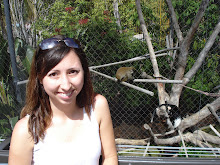Technology has forever changed how and what people are learning. The classroom of 25 years ago was much different than today. Today's classroom may even be different than that of a classroom only one year ago. Therefore the learner must also change. In my opinion the learner of today must be like a sponge with the ability to soak up new information throughout his or her lifetime. People are no longer able to acquire all of the information they will need for their jobs throughout life. George Siemens wrote, "Learning is a continual process." Siemens goes on to explain that the process of learning is changing. Because of the complex environments that we live in and the social networks we are linked to, learning "is not just limited to occur exclusively inside the individual, but it also exists outside of the individual." If we think of water as knowledge, it exists outside of the sponge, and when added to the sponge, or in this case the learner, it adds to what is already known. This theory is called Connectivism. The premise of Connectivism is that we can gain knowledge through networking with others as well as organizing our information clearly in our internal neural network - again think of the connections in a sponge. Siemens goes on to say that what we know currently is important but not as important as "our ability to learn what we need for tomorrow." Keeping this in mind, the sponge, the learners of today, must be able to filter through all of the information they are bombarded with through their networks and distinguish between what is important and what is unimportant.
Click here to read more about George Siemens' theory of Connectivism
Click here to see George Siemens talk about the Changing Nature of Knowledge
Top Articles, Reviews, and Tech Tips for 2022
3 years ago

Heather,
ReplyDeleteHow about including the squeezing of the sponge as the spreading of slightly changed water that was absorbed by the sponge in the same way as students in a network disseminate knowledege that has been absorbed and filtered through their own perspectives?
Dr. Burgos